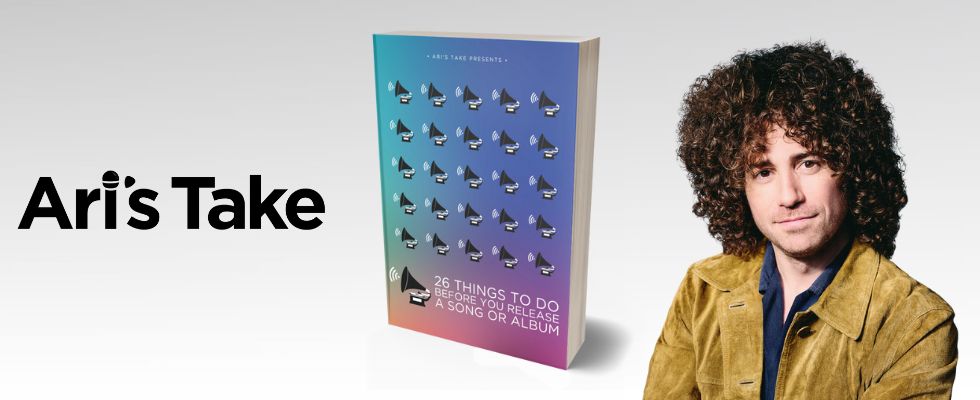I get a lot of questions about press. Of course everyone wants a 5 star album review in Rolling Stone or an 8.7 in Pitchfork, but you have to be realistic about your press pursuits.
If you have never received press, there is a very slim chance that you will get an album review in a popular blog or nationally distributed magazine. Your best chance for media coverage is your hometown papers, magazines and blogs or local publications in cities you’re touring to.
The difference between Rolling Stone music editorial staff and the La Crosse Tribune music editorial “staff” (person) is one of them has a backlog of tens of thousands of CDs waiting to be reviewed and the other is in constant need of material. Can you guess which is which?
The reason it’s, dare I say, easy to get press when you’re on tour is because local publications are always looking for material – especially the daily papers. Even blogs with a local focus need material. Rolling Stone, Pitchfork and the bunch get inundated with more music than they have bandwidth for.
+What’s a Publicist and Should I Get One?
There is a different way to approach local, national, digital and print outlets. You always want to keep in the back of your mind when reaching out to any outlet: “What can I do for them? Why does my story deserve coverage?”
Sometimes just being a touring band playing a reputable venue in their town is enough to get a few paragraphs. Other times you’ll need an interesting story that sets you apart from every other band playing a show in town that night.
Obviously, if you have received zero press, then it may be worth your while to book some shows at well-respected venues in small towns and contact the local newspaper. Chances are, being a touring band in their small town will be enough to get you some ink, and possibly even an included photo.
Save all the early reviews you get. Add the best to your website. If a bigger publication wants to review you, they’ll want to see that you are a band on the rise and have been garnering press wherever you go.
Don’t expect album reviews.
They are boring to read by the majority of the public. Very few publications even write them anymore. Yes, I know you’d like every publication to talk about how this new album of yours will be generation defining, but the local newspaper is trying to bring the most interesting story to its readers. And right now it’s that you are going to put on a great show in their town. Notes about your most recent album can be included in your press release – especially if you’re on a tour supporting it – but it doesn’t need to be more than a couple sentences.
The Press Release
The beauty of the digital age is that most publications rarely ask for hard press kits anymore. Some music editors (especially the older ones) do ask for you to mail your CD to them, but many are ok with a BandCamp link. Regardless of how they listen to your music, they all want a press release.
A press release is a one-page, objective (ish) fact sheet illuminating the who what where why and when of your event.
Contact Information
Make sure it is very clear who the reviewer should contact. Publicists will brand press releases with their letter-head that has their email and phone number. You should put a contact email at the top and the bottom of the press release.
Title
Every press release should have a title. Put the title in the subject line of your initial email. Titles should be to the point, but exciting enough for a reviewer to look further. “Touring Band To Play Birmingham” is boring. “Red Pills Bring Their Fire/Rock Show To Birmingham” is better. “This Band Lights Stuff On Fire…On Stage” will definitely get a read.
Old school publicists may disagree with the sensationalist approach of the title, but we’ve entered into a new era of press. Upworthy and Buzzfeed are masters at click baiting and are trumping nearly every traditional news outlet’s digital traffic.
Re-Printing Word For Word
Many times a publication will reprint your press release word for word. So make it readable and enticing. I’d say about 20% of my press coverage has been a publication (online or in print) literally reprinting my press release. These sometimes will get added to the digital edition’s calendar or “Upcoming Events” or “What To Do This Weekend” section. Oftentimes the music reviewer runs out of time and needs to fill content. So your press release gets reprinted. If you have a kickass title, people will click through to your What To Do This Weekend press release.
It MUST Be An Event
There’s no use sending a press release to let a reviewer know that you have a 3 month old album out. And, uh, how bout a review? No. The only way you’re going to get press is if you’re pitching an event. A show. A release. The birth of your baby (if you’re a celebrity). A charity event. A Dance Off. The release of a music video. Something newsworthy.
1st Paragraph
Who, what, where, why, when, how much. The facts. This needs to be first so the reviewer (or reader) can easily find this information and they immediately know what this event is.
2nd Paragraph
This is where you list your interesting story (the hook), your band’s back-story and accolades. What makes your band unique? Only include the background info that’s most interesting. 1-2 sentences. Include your most impressive accolades: who have you toured with, opened for, TV shows/movies your songs have been placed in, quotes from celebrities about your band, awards/contests you’ve won, festivals you’ve played. Be careful not to make it seem too braggy. If this press release is sent by you, the reviewer will know you wrote it. Keep it objective(ish).
You can use adjectives, but no superlatives.
+How To Write an Effective Band Bio
3rd Paragraph
Information about the event/release. Why should they cover this event? What makes it special? If this is a general tour press release, you can discuss the tour here (50 date US tour with stops at local children’s hospitals in 20 cities).
Last couple sentences
Other interesting information. This is your final effort to showcase to the reviewer why she should cover your event or band and to the reader why he should come out to your show, watch your music video, listen to your album.
These are loose paragraph guidelines, but this is the order. And remember, never make it longer than a page. If the reviewer needs more info, she’ll ask.
Never Attach It To An Email
When you contact a reviewer over email the subject line should be your title, you should write a brief personalized, introduction paragraph, link to the album on BandCamp or SoundCloud, a YouTube video, Facebook Page and your website, and explain that you’ve included the press release and promo photo below.
It can be something like:
Hi Kim, Minneapolis based, The Red Pills, are stopping through Denver on October 3rd as part of our 50 date US tour. Our new song, “I Hope I Never Know” was just featured on Parenthood on NBC last week. Let me know if you’d like to setup an interview with the band for a piece in the Denver Post. I’ve included a link to our press release and EPK (with music, videos and photos) below.
Thanks!
EPK (with photos): http://yourband.com/epk
Press release: http://LinkToPressRelease.com
-Ari Herstand
The Red Pills manager/guitarist
DO NOT ATTACH IT TO THE EMAIL. Do not clutter up their inbox or make them download an attachment. Not a press release, not a promo photo, not a song. If they want a word doc or a promo photo they will respond and ask you to send it over as an attachment. But most want everything contained in the email and want to just copy and paste and click through links. Downloading is too slow, takes up space and is too much work.
EPK
Your EPK should contain: your bio, downloadable promo photos, music player, tour history/upcoming shows, videos, social links, discography, any and all accolades, press clippings and contact info. This is not meant to be public, but just intended for industry people.
No Response Does Not Mean No Coverage
I can’t tell you how many times I have reached out to press outlets with an email very similar to the one above, where I have never received a response, BUT I got either a full preview of my show in the paper/blog or they copy/pasted my press release.
Always check the publication in print and online when you tour through the city. Sometimes their print edition will list show previews which do not make the digital version – and vice versa.
“For Immediate Release”
You see this statement in many press releases sent out by companies announcing things like a new iPhone or what not. However, when you’re contacting music reviewers weeks before your show, you don’t want them to print a show preview in the weekly newspaper a month before your show. So list at the top of the release when you’d like it printed/posted:
“For release the week of October 2nd.”
Lead Time
For local press, contact them about 4 weeks before your show. Many times the music reviewers will have stuff cued up a couple weeks in advance of printing, but sometimes they are scrambling looking for content for this week. Sometimes (depending on how organized they are) they’ll ask you to get back to them a few days before they go to print (or post the blog). If you’re too early (2 months), they’ll ignore it as it’s not pressing, but if you’re too late (less than a week) you may have missed your window and that edition may be already set. If the reviewer only reviews physical CDs (some still do), you need enough time to get it in the mail to her.
If you don’t get a response, follow up a week later. Giving yourself a 4 week window allows for followups. Giving yourself one week does not.
Publication Research
Before contacting the reviewer, make sure you do a bit of research on the publication. Make sure they actually cover Arts and Entertainment. Find out how often (weekly, daily, monthly). And, of course, make sure you get the contact email and name of the music or community events reviewer.
Don’t Be Afraid Of The Phone
If you can’t find an email on the website, most likely they’ll have a contact phone number listed. Pick up the damn phone and call and ask. You’ll most likely reach the receptionist. All you need to do is then ask “Hi, I’m looking for Kim Smith’s email.” Yes, learn the name of the music reviewer before calling. This is not tough to find. The receptionist will have this information and gladly give it to you. And if you haven’t gotten an email response from the reviewer, give her a call, ask if she got your press release and if she needs anymore info from you. Sometimes all it takes is a phone call to sift your email out of the pile.


















